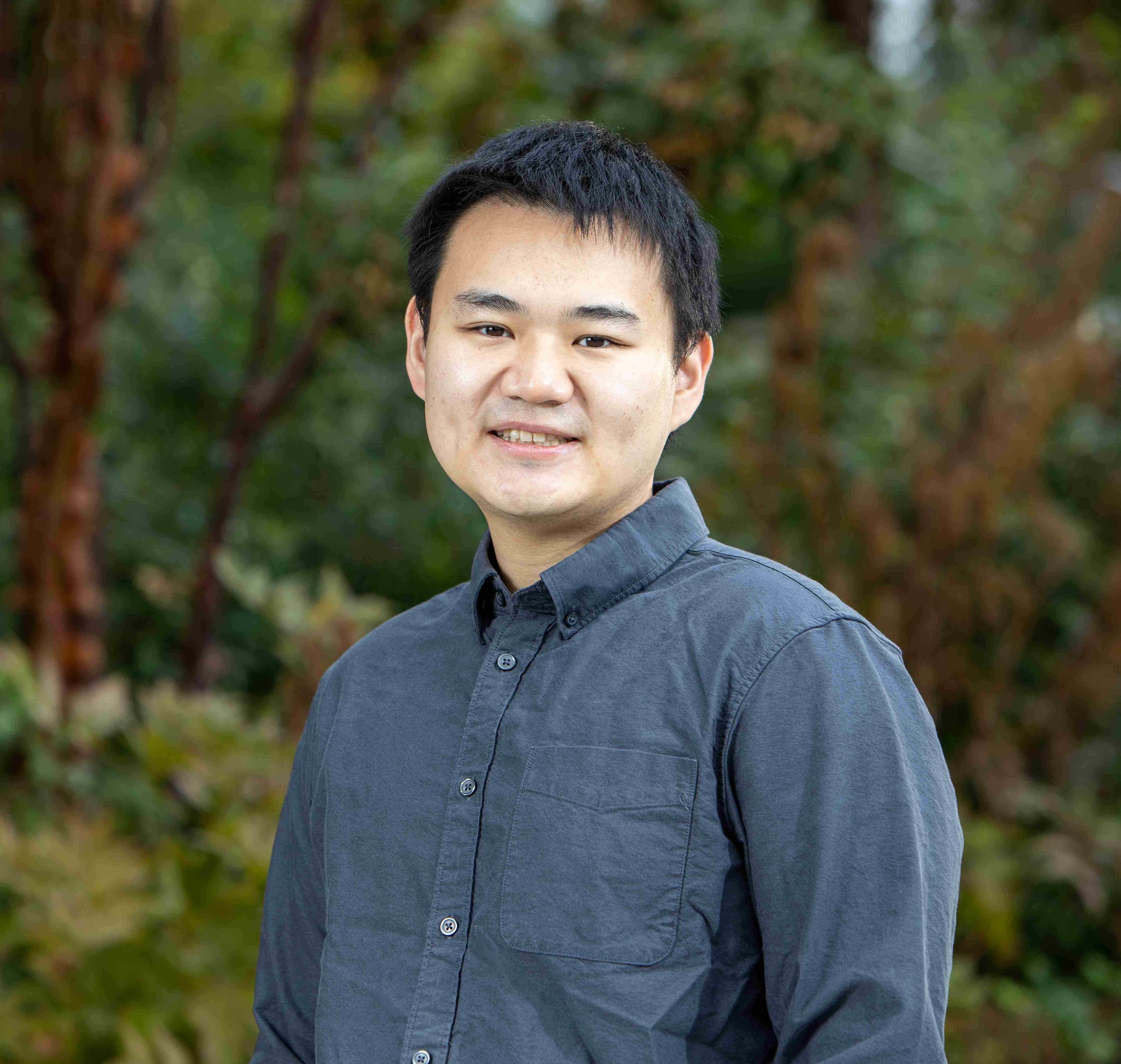Simon Shaolei Du 杜少雷
 |
Simon Shaolei Du |
About Me
I am an assistant professor in the Paul G. Allen School of Computer Science & Engineering at University of Washington. My research interests are broadly in machine learning such as foundation models, reinforcement learning, non-convex optimization and data selection.
Prior to starting as faculty, I was a postdoc at Institute for Advanced Study of Princeton, hosted by Sanjeev Arora. I completed my Ph.D. in Machine Learning at Carnegie Mellon University, where I was co-advised by Aarti Singh and Barnabás Póczos. Previously, I studied EECS and EMS at UC Berkeley. I have also spent time at Simons Institute and research labs of Meta, Google and Microsoft.
Prospective students, postdocs, and visitors, please send me an email with your CV.
Selected Awards
IEEE AI’s 10 to Watch, 2024
Schmidt Sciences AI2050 Early Career Fellow, 2024
Alfred P. Sloan Research Fellowship, 2024
Intel Rising Star Faculty Award, 2023
Samsung AI Researcher of the Year, 2022
National Science Foundation CAREER Award, 2022
AAAI New Faculty Highlights, 2021
CMU School of Computer Science Distinguished Dissertation Award Honorable Mention, 2019
Nvidia Pioneer Award, 2018
Recent Featured Papers
Reinforcement Learning for Reasoning in Large Language Models with One Training Example
Yiping Wang, Qing Yang, Zhiyuan Zeng, Liliang Ren, Lucas Liu, Baolin Peng, Hao Cheng, Xuehai He, Kuan Wang, Jianfeng Gao, Weizhu Chen, Shuohang Wang*, Simon S. Du*, Yelong Shen*
Exploring How Generative MLLMs Perceive More Than CLIP with the Same Vision Encoder
Siting Li, Pang Wei Koh, Simon S. Du
Transformers are Efficient Compilers, Provably
Xiyu Zhai, Runlong Zhou, Liao Zhang, Simon S. Du
Selected Publications
Optimal Multi-Distribution Learning
Zihan Zhang, Wenhao Zhan, Yuxin Chen, Simon S. Du, Jason D. Lee
Conference of Learning Theory (COLT) 2024
Settling the Sample Complexity of Online Reinforcement Learning
Zihan Zhang, Yuxin Chen, Jason D. Lee, Simon S. Du
Jounal of the ACM (JACM) 2025, Conference of Learning Theory (COLT) 2024
Understanding the Acceleration Phenomenon via High-Resolution Differential Equations
Bin Shi, Simon S. Du, Michael I. Jordan, Weijie J. Su
Mathematical Programming Series A, 2022
Few-Shot Learning via Learning the Representation, Provably
Simon S. Du*, Wei Hu*, Sham M. Kakade*, Jason D. Lee*, Qi Lei*
International Conference on Learning Representations (ICLR) 2021
Is a Good Representation Sufficient for Sample Efficient Reinforcement Learning?
Simon S. Du*, Sham M. Kakade*, Ruosong Wang*, Lin F. Yang*
International Conference on Learning Representations (ICLR) 2020
On Exact Computation with an Infinitely Wide Neural Net
Sanjeev Arora*, Simon S. Du*, Wei Hu*, Zhiyuan Li*, Ruslan Salakhutdinov*, Ruosong Wang*
Conference on Neural Information Processing Systems (NeurIPS) 2019
Gradient Descent Finds Global Minima of Deep Neural Networks
Simon S. Du*, Jason D. Lee*, Haochuan Li*, Liwei Wang*, Xiyu Zhai*
International Conference on Machine Learning (ICML) 2019
Fine-Grained Analysis of Optimization and Generalization for Overparameterized Two-Layer Neural Networks
Sanjeev Arora*, Simon S. Du*, Wei Hu*, Zhiyuan Li*, Ruosong Wang*
International Conference on Machine Learning (ICML) 2019
Provably efficient RL with Rich Observations via Latent State Decoding
Simon S. Du, Akshay Krishnamurthy, Nan Jiang, Alekh Agarwal, Miroslav Dudík, John Langford
International Conference on Machine Learning (ICML) 2019
Gradient Descent Provably Optimizes Over-parameterized Neural Networks
Simon S. Du*, Xiyu Zhai*, Barnabás Póczos, Aarti Singh
International Conference on Learning Representations (ICLR) 2019
Gradient Descent Can Take Exponential Time to Escape Saddle Points
Simon S. Du, Chi Jin, Jason D. Lee, Michael I. Jordan, Barnabás Póczos, Aarti Singh
Conference on Neural Information Processing Systems (NIPS) 2017